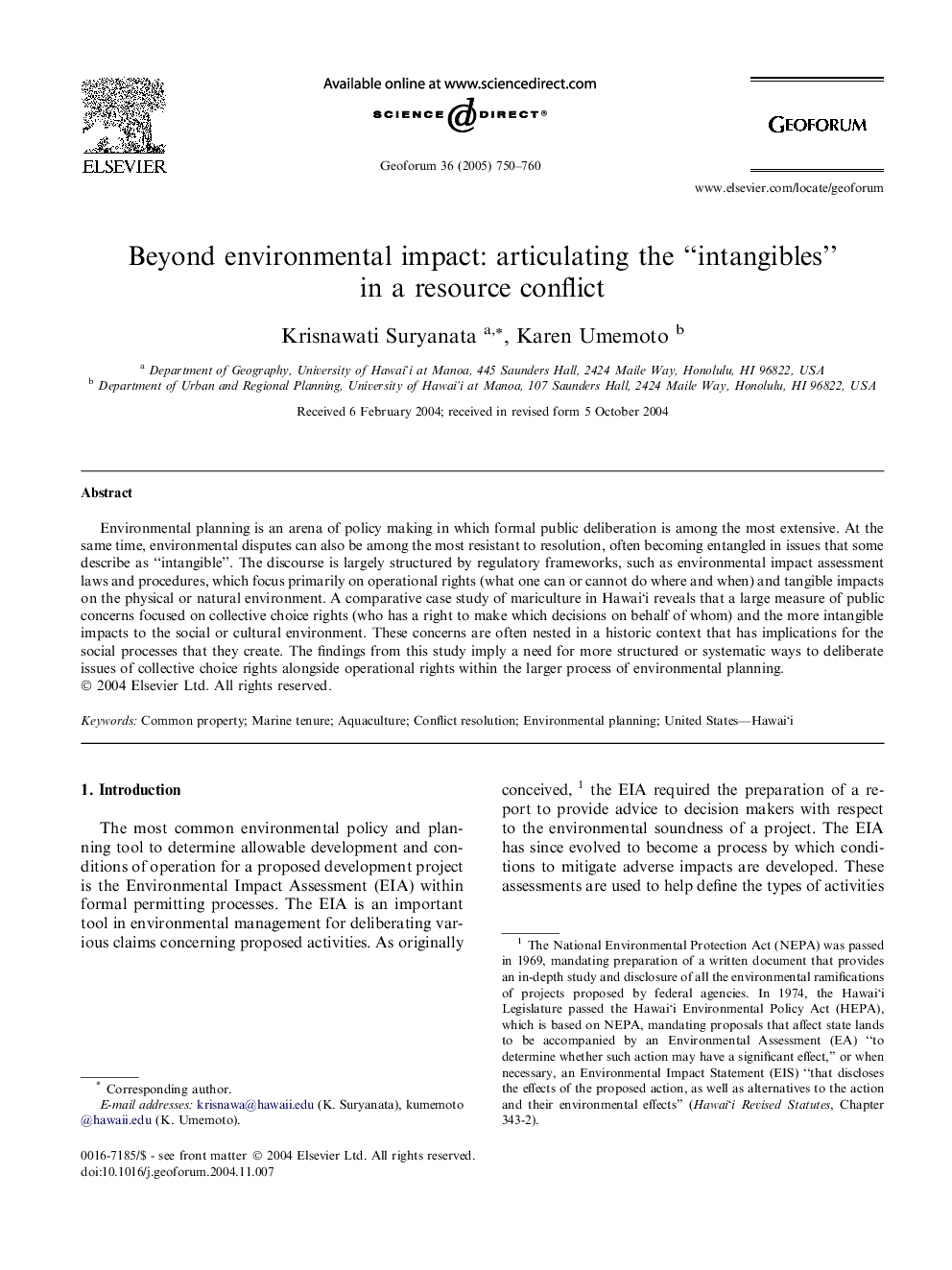| Article ID | Journal | Published Year | Pages | File Type |
|---|---|---|---|---|
| 9552258 | Geoforum | 2005 | 11 Pages |
Abstract
Environmental planning is an arena of policy making in which formal public deliberation is among the most extensive. At the same time, environmental disputes can also be among the most resistant to resolution, often becoming entangled in issues that some describe as “intangible”. The discourse is largely structured by regulatory frameworks, such as environmental impact assessment laws and procedures, which focus primarily on operational rights (what one can or cannot do where and when) and tangible impacts on the physical or natural environment. A comparative case study of mariculture in Hawai'i reveals that a large measure of public concerns focused on collective choice rights (who has a right to make which decisions on behalf of whom) and the more intangible impacts to the social or cultural environment. These concerns are often nested in a historic context that has implications for the social processes that they create. The findings from this study imply a need for more structured or systematic ways to deliberate issues of collective choice rights alongside operational rights within the larger process of environmental planning.
Related Topics
Social Sciences and Humanities
Economics, Econometrics and Finance
Economics and Econometrics
Authors
Krisnawati Suryanata, Karen Umemoto,
